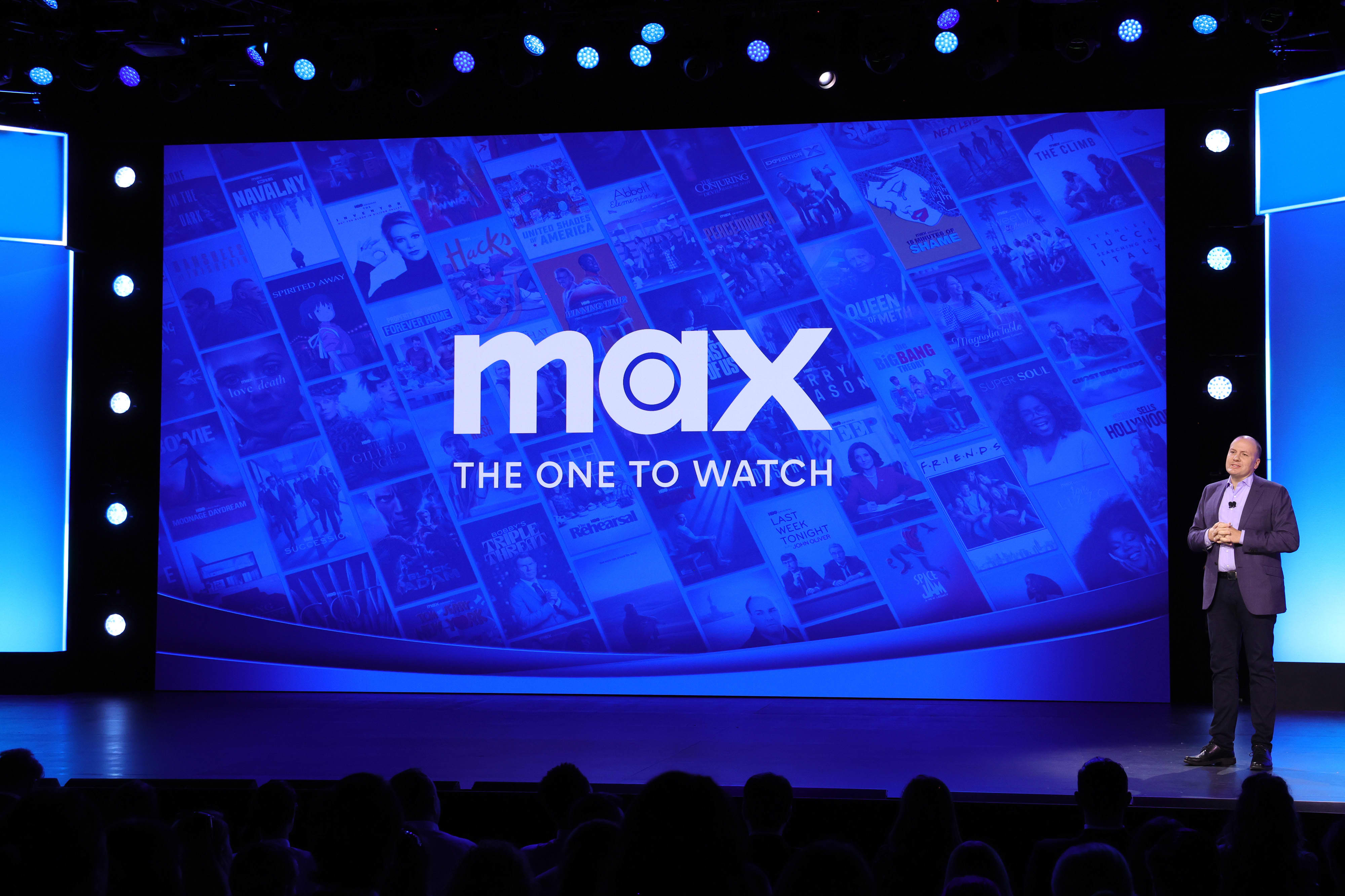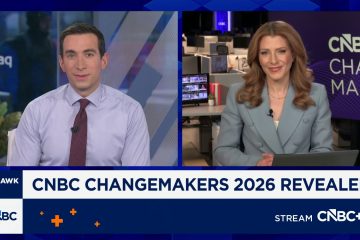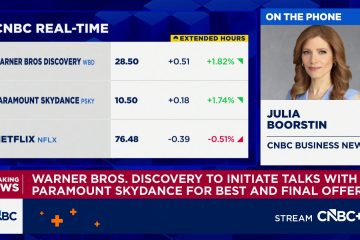
Kevin Mazur | Getty Images Entertainment | Getty Images
Media giants are making their annual pitches to advertisers this week against the backdrop of significant disruption in the industry.
The Hollywood writers and actors strikes are over, meaning Upfronts will likely be star-studded once again, major cost cutting is largely in the rear view mirror and streaming has fully embraced advertising models. Still, this year’s Upfronts presentations come in the midst of further tumult for the industry.
“It does feel like this is a moment, a moment in terms of what the next year, two years will bring,” Warner Bros. Discovery CEO David Zaslav said during the company’s earnings call last week. “I said a while back that this is a generational disruption.”
Here’s what will likely be topics of discussion during Upfronts week, whether it’s on stage, in the audience or in private.
Advertising rebound? That depends
Media companies just finished reporting quarterly earnings, which showed traditional TV is still lagging behind streaming and digital when it comes to ad revenue.
Traditional TV ad buying during Upfronts is expected to increase about 1% to $18.79 billion this year, according to data from eMarketer. This is an improvement from last year when it was down about 4% to $18.64 billion.
Meanwhile, digital advertising spend during the Upfronts and Newfronts — which take place a few weeks ahead of the traditional media events — is expected to increase nearly 32% to $16.45 billion this year, according to eMarketer.
There was a general improvement in traditional TV ad revenue last quarter, down 8% as opposed to nearly 16% in the same quarter last year, according to a note from Macquarie senior media tech analyst Tim Nollen. Streaming advertising was up 22% across media companies, and now makes up 18% of total advertising.
Tech companies including Snap, Roku, Google and Microsoft each saw digital advertising revenue make a comeback this past quarter. And Netflix, Amazon and Alphabet‘s YouTube all have growth stories to tell advertisers.
People passing billboard posters for the Netflix television series The Crown in Waterloo on 17th November 2022 in London, United Kingdom.
Mike Kemp | In Pictures | Getty Images
“Netflix is in many respects the gold standard when it comes to streaming,” Disney CEO Bob Iger said during the company’s earnings call this month.
Netflix ended last quarter with about 270 million global subscribers, riding a wave of password-sharing-freeloaders-turned-paying-customers during the past year.
The company has leaned on its cheaper, ad-supported tier — at $6.99 per month in the U.S. — to coax price-conscious subscribers to pay monthly subscription fees. As of January, a little more than a year after its launch, Netflix’s ad-supported tier had more than 23 million monthly active users.
Amazon Prime Video debuted its advertising tier earlier this year. Amazon has spent billions on live sports rights – coveted advertising real estate – in recent years, including paying about $1 billion per year to stream “Thursday Night Football,” one of the National Football League’s season-long packages of games. Amazon reported last month that its advertising revenue jumped 24% in the first quarter to $11.8 billion.
YouTube’s first-quarter advertising revenue also surged more than 20% to $8.1 billion, surpassing analyst estimates. In February, YouTube became the most-watched streaming application for 12 consecutive months, according to Nielsen.
Amazon will hold its Upfront presentation on Tuesday in New York City, with Netflix and YouTube following a day later.
Legacy lags
Tom Hiddleston stars as Loki in the Disney+ series “Loki.”
Disney
The vibe may not be as positive among some of the traditional media players.
Domestic advertising for Comcast‘s NBCUniversal was flat in the first quarter at about $2 billion, but streaming service Peacock was lifted by ad revenue. NBCUniversal will kick off upfronts week Monday at Radio City Music Hall.
Disney reported a first-quarter decline in advertising revenue for its traditional cable networks and at Hulu, though ESPN domestic ad sales increased by more than 20% in the quarter versus the prior year. Disney will hold its presentation Tuesday.
“The challenge, obviously, in the advertising market right now is there’s a lot more supply in the market, largely as a result of one of our competitors entering the ad tier,” said Disney CFO Hugh Johnston during this month’s earnings call. “But that said, I think generally speaking we feel like we’re in a better place than we were a year ago.”
Warner Bros. Discovery, which is holding its presentation at Madison Square Garden on Wednesday, reported traditional TV advertising revenue fell 11% last quarter from a year earlier to about $2 billion. Streaming advertising revenue jumped 70%, but the overall number is much lower — just $175 million.
Warner Bros. Discovery and Disney announced last week they would offer their streaming services — Max, Disney+ and Hulu — together, marking the first streaming bundle of major services. The two companies, along with Fox, are also working on a sports streaming joint venture. It remains to be seen what other companies join the fray in bundling.
Sports draw interest
Sports remain the glue of the TV bundle, still beckoning the largest audiences. And in the background of conversations during Upfronts week is the future of the NBA rights.
While Warner Bros. Discovery owns them until the end of the 2024-25 season, the next owner is currently being sorted out. NBCUniversal has emerged as an apparent top contender while Warner Bros. Discovery mulls if it’ll match NBC’s offer.
The future of the regional sports networks also remains a question, and broadcasters have been slowly snapping up rights to local games.
Los Angeles Lakers forward LeBron James, #23, during the NBA game between the Los Angeles Clippers and the Los Angeles Lakers at Crypto.com Arena in Los Angeles on Jan. 7, 2024.
Jevone Moore | Icon Sportswire | Getty Images
EMarketer Senior Analyst Ross Benes noted that in order for Warner Bros. Discovery to add value to its sports joint venture with Disney and Fox, it needs to retain its NBA rights.
“Without NBA rights, WBD will become a weak third leg on the sports JV tricycle…If it loses the NBA, many WBD’s customers will be left wondering what all the cost-cutting was for,” he said.
Fox Corp., which holds its Upfront on Monday, said first-quarter ad revenue was down compared to the prior quarter when it aired the Super Bowl on its broadcast network. CEO Lachlan Murdoch said on last week’s earnings call that ad trends are “clearly moving in the right direction” in early Upfront discussions, thanks in large part to Fox’s sports slate.
Like last year, Paramount Global skipped holding an Upfront presentation this year. Instead, the media company held nine events beginning in April in Los Angeles, Chicago and New York.
Although there wasn’t a big presentation at Carnegie Hall, the events still included sneak peaks of upcoming content and featured A-listers like Nicole Kidman, Demi Moore, Stephen Colbert, Tony Romo, and others.
Paramount is grappling with an ongoing sale process and is also currently without a singular CEO.
Disclosure: NBCUniversal is the parent company of CNBC.





